‘People won’t notice until it’s too late’: No more fishing in NQ as gillnet ban arrives
NQ’s wild-caught seafood industry could be wiped out by November, leaving locals with nothing but farmed and imported fish. Read why.
News
Don't miss out on the headlines from News. Followed categories will be added to My News.
Townsville residents are so hungry for local, sustainable seafood that in 2022 Lucas Dansie opened his own shop in Burdell, specialising in North Queensland fish.
One year later, a commercial fishing net ban being legislated for by the Federal Government means his business will be wiped out.
“People want wild-caught, fresh, local seafood,” Mr Dansie said.
“That is all they want. But no one is going to know they’ve lost it until it’s too late and they can’t find it.”
Mr Dansie said the upcoming gillnet fishing ban will have “monstrous” implications for the NQ seafood industry, which catches from one of the healthiest fisheries in the world.
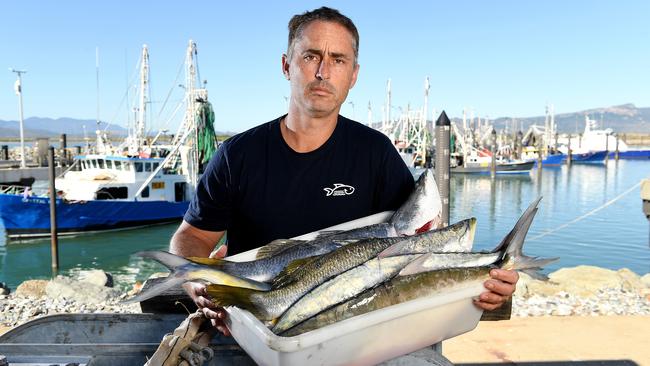
Mr Dansie said the ban is all politics and no science.
“People buy from me and say ‘that’s the best barra I’ve ever eaten’ and I know why because I know the guy who caught it, where he caught it, and what hour,” he said
“Every fishing boat is GPS-tracked by the government.”
Mr Dansie said Queensland has been building a sustainable fishing industry over the last 30 years and this sudden attempt to wipe them out has come as a shock.
At an Ayr protest rally on Saturday, the owner of Burdekin-based seafood shop Braddy’s Seafood stood up to talk, but couldn’t manage any words.
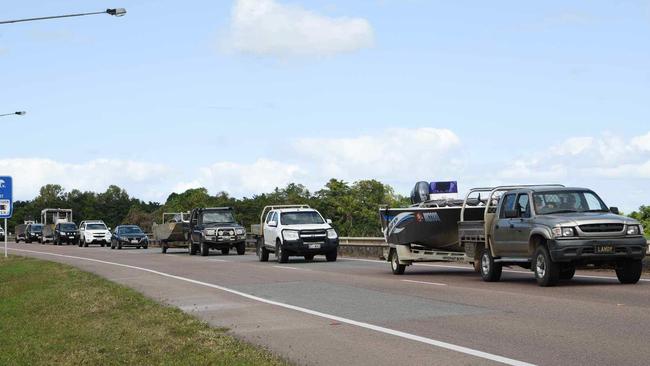
Burdekin fisherman Neil Green said over 400 people attended the town hall meeting.
“Our local shop owner in Ayr got up to speak, and couldn’t talk because they were in tears. They will have to close the doors,” Mr Green said.
“An outboard mechanic said he’ll lose $100,000 per year in work.”
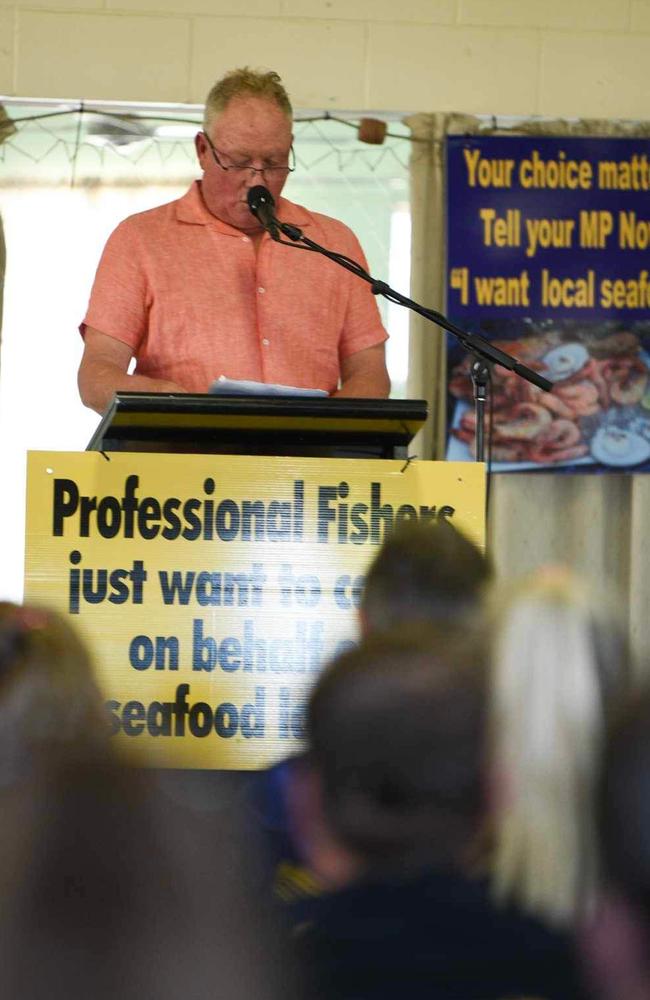
All this is in reaction to a June 5 announcement of a joint-funded $160m package by the Federal and Queensland Governments to make the Great Barrier Reef World Heritage Area gillnet free.
The world heritage area runs from the Torres Strait to Bundaberg, starting at the low water mark and going to the offshore edge of the marine park.
A Department of Climate Change, Energy, the Environment and Water (DCCEEW) spokesman said the federal and state governments have been working for “many years” to address the impact of gillnets on threatened species.
“The Queensland Government is leading the implementation of fishery reforms in Queensland waters and leads consultation with fishers,” he said.
Mr Dansie said the Queensland Department of Fisheries were just as thrown by the gillnet ban.
“Now when we try to talk to politicians, they don’t pick up. Neil (Green) has had his email blocked by politicians,” he said.
Mr Dansie said the banning of gillnets will make commercial fishing impossible above Bundaberg.
“We only catch with gillnets,” he said.
“Australia has one of the most heavily managed fisheries in the world and it’s getting super complicated because the WWF said gillnets are killing dolphins and dugongs.”
Mr Dansie described the WWF claims as a ‘propaganda campaign’.
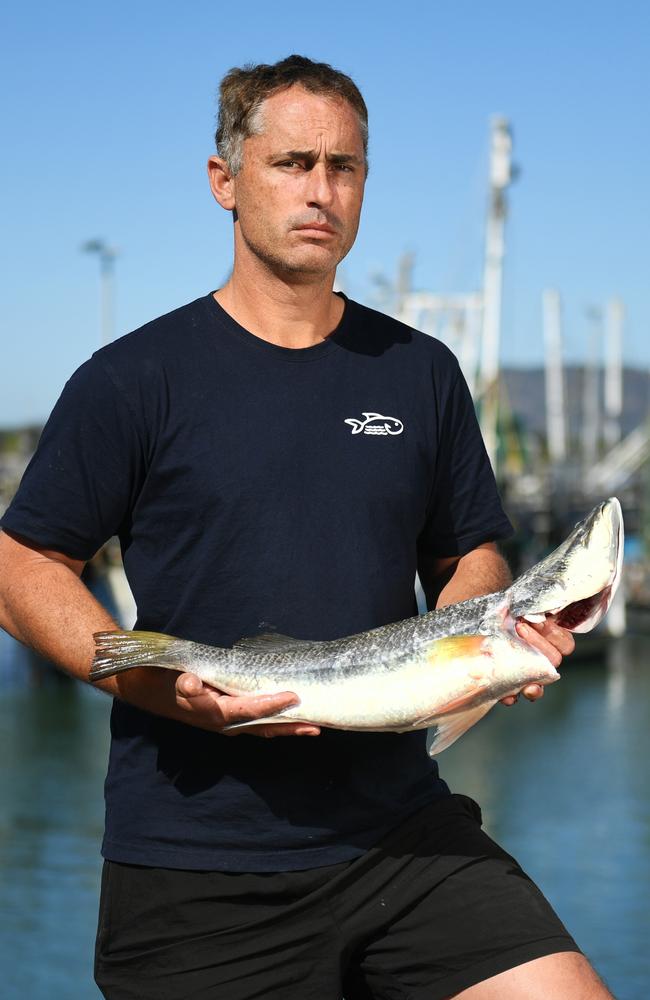
“There is a misconception that fishing nets ‘catch everything in the water’ and ‘run for kilometres’ over the reef. We don’t go anywhere near the Great Barrier Reef. We gillnet in two metres or less of muddy water, because that’s where the barramundi and the bread and butter species are,” he said.
“In Indonesia and other countries they net on the reefs, but we’re dead against it.”
Mr Dansie said a typical NQ commercial fisherman will run a 10-15m net off a sandbar or estuary.
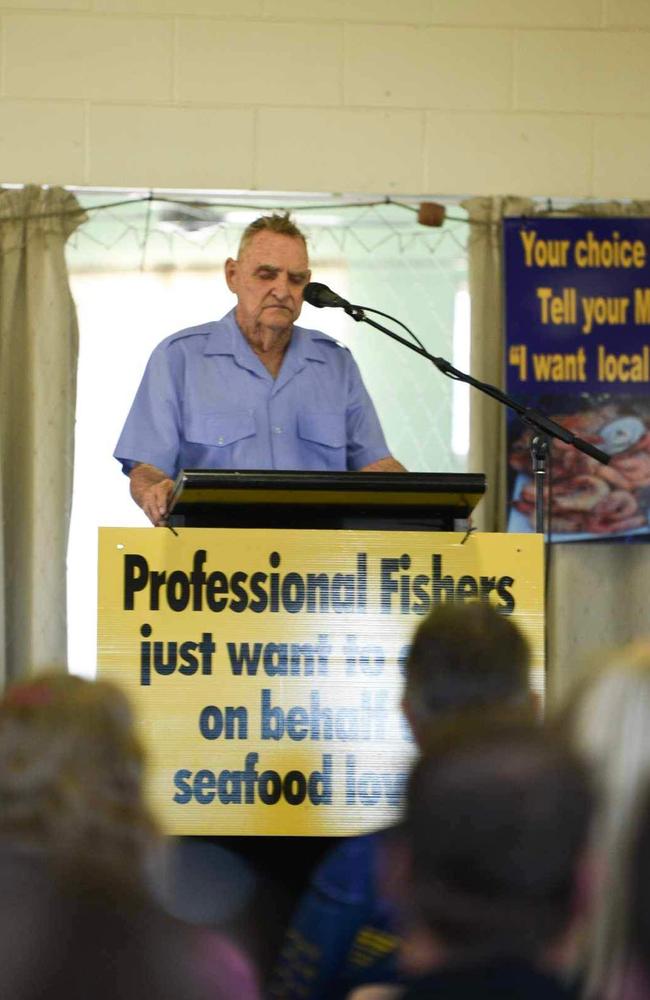
“There are guys who only go out on certain tides and moons because it’s actually hard netting fish,” he said.
“They will watch fish come in, sleep against the net, then swim away without ever getting caught.”
One huge killer of marine animals are ghost nets – often found floating into Australian waters from Asia and the Pacific after being cut free or lost by large trawler boats.
It’s often ghost gillnets that entangle turtles, dugongs and sharks.
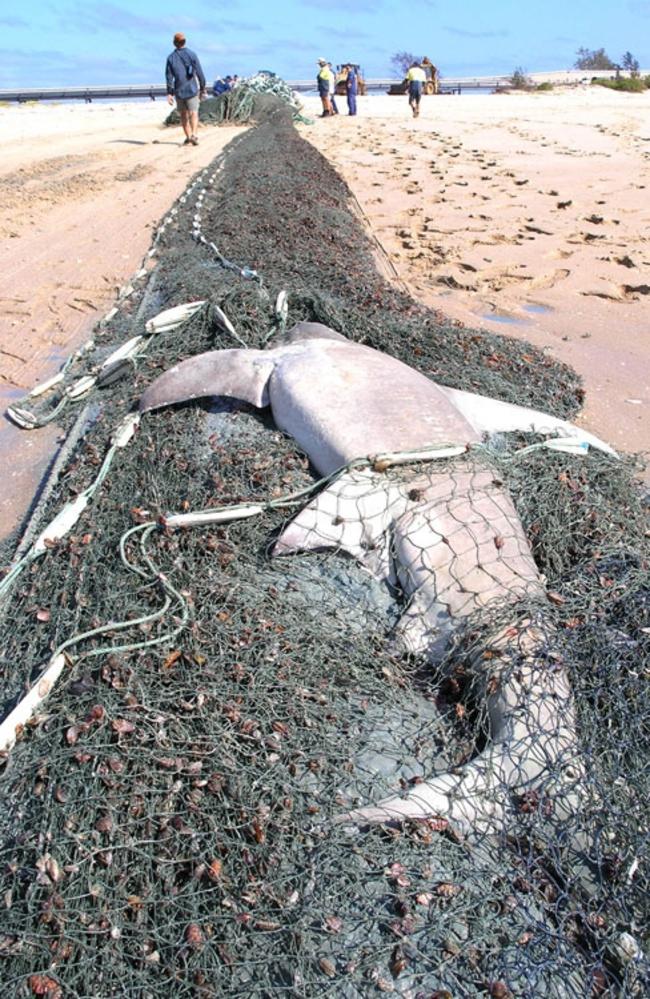
There is huge industry concern that the ban on sustainable Australian fisherman will only pump more money and demand into unregulated foreign fishing.
“They are taking out a sustainable fishery under the guise of appeasing UNESCO,” Mr Dansie said.
The government’s $160m package also promises to fund the creation of ‘net-free’ zones near the Torres Strait and in the Gulf, declare the hammerhead shark a no-take species, buyout and remove all commercial N2 and N4 licences by December 31 and phase out all “remaining” limited N1 licenses by mid-2027.
“They use this term ‘mid-2027’ but that’s for the Gulf. For us here the ban will be by December 31,” Mr Dansie said.
“Our fishing season ends in October, then we’re done.”
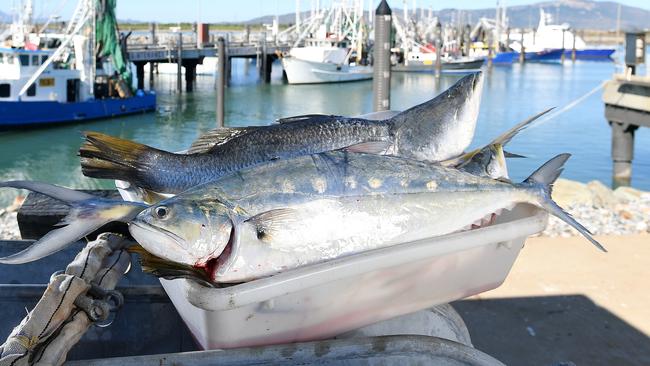
Burdekin fisherman Neil Green believes politics is the driving force behind the ban.
“At our rally there were fisherman who’d travelled from the Sunshine Coast, Karumba and Mackay,” Mr Green said.
“The meeting concluded with a resolution to go to the Queensland Department of Agriculture and Fisheries and Federal Environment Ministers.”
A rally on the lawn of Parliament House is also being organised for August 22 – the first sitting of parliament.
Mr Green said he wanted the Queensland minister to allow commercial gillnet fishing in state waters.
“He has the power to do that. State waters are from the low tide mark into the estuaries, which is where we fish,” he said.
“At the meeting we all agreed we’re sick of being told we’re netting on the Great Barrier Reef because we don’t, but it sounds good for politicians.”
A Queensland Department of Agriculture and Fisheries spokesman said the N1, N2 and N4 licences in the world heritage area will be phased out as announced.
“The world heritage area includes state waters,” the spokesman said.
More Coverage
Originally published as ‘People won’t notice until it’s too late’: No more fishing in NQ as gillnet ban arrives





